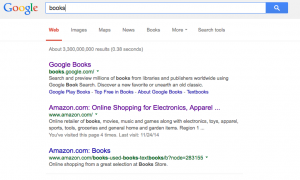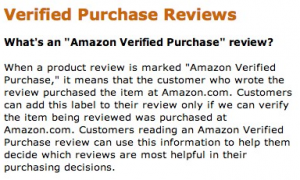
With the fall in prices for trad published books, the indie Kindle goldrush may be over, so Cate Baum looks into Amazon’s algorithm and how its search engine works for authors and their books – and why Amazon reviews are not enough to sell a book – and maybe never have been.
There’s a lot of misinformation around about paid reviews, customer reviews, Fiverr reviews and the ethics and technical issues surrounding them for book sales. Frankly, I’m tired of the many forums banging on with the phrase, “I am totally against paid reviews.” And yet the hallowed Amazon review has become the new god of all indie authors. For all the wrong reasons.
The concept of the different types of paid review available has been smeared by misinformants galore, some declaring expertise, and I am constantly trying to educate authors on why Amazon customer reviews just don’t cut it in terms of getting your book seen, and have come to a startling conclusion: Most authors don’t understand what Amazon reviews are for.
So let’s break it down.
Google vs. Amazon Search Engines
My background is in the so-called Top 5 SEO marketing agencies: that’s Search Engine Optimization. It’s how you get seen in Google SERPs, otherwise known as the Search Engine Results Pages. With a team of experts, I would advise blue chip global corporations on how to make their web pages and products show up as much as possible against competitors, both locally and globally. The company I worked for was a Google company, and as a result I got trained in the inside workings of their algorithm. That is, the patterns Google uses to decide who goes where on a results page.
How Google Works

Google SERPs
So the thing about Google is this: It is ubiquitous. It is made to serve the user. It takes external data from many websites it does not have control over, and processes it, using the most unbiased systems it can. Depending on what keywords you put on your webpage, Google can tell who you would like to see visit your pages.
There are many aspects to how a page is shown in results, and why, such as making sure your page is thematically rich, that is, telling Google what subject the page is about, and page integrity, that is, it follows Google’s Webmaster guidelines for many aspects of page creation so that Google can crawl, i.e. read your information easily.
How Amazon Works

So let’s now look into Amazon, and how their search engine works. Firstly, unlike Google, Amazon is not ubiquitous. The Amazon search engine does not take external data from other websites, in other words it doesn’t care if you’re popular off of Amazon. It is a biased system, based on one thing only: Sales and EPCs (earnings per click on things like affiliate links). And the bias is towards the Jeff Bezos “one-click” system: Giving the customer the quickest and most likely next book to buy, with one click, to Amazon’s advantage.
Amazon bases its search results on how many sales you made, tailored to the previous buying habits of the customer on Amazon.
Amazon is a company that thrives on holding the majority market share, and therefore wants to sell as many books as possible at the lowest price available as fast as possible. Therefore, Amazon has no qualms about changing search results to make this possible for profit and market share. They are a profit-making company selling products, and that is their business; unlike Google, who have an obligation and a responsibility to an unbiased and regulated system, Amazon are under no such obligation to serve you as a product seller before they serve their customers with “the lowest possible prices.”
Amazon is very transparent about this. In the Kindle terms and conditions, for instance, it says,
You acknowledge that we have no obligation to market, distribute, or offer for sale any Digital Book, or to continuing marketing, distributing or selling a Digital Book after we have commenced doing so.
The Amazon search engine uses a tree structure, like a sitemap, to arrange where products go on their site. Therefore when you fill in your book details in the back end, you are limited to two niche categories only, and certain keywords. You cannot go “long-tail” with Amazon’s keywords in setting up your book. You can only go as niche as Amazon wants you to go. Why? Because while Google can pull information in from all over the Internet as a tool for finding things, Amazon is a consumer site with an inventory only. Amazon, ladies and gentlemen, is a shop.
However, you can use keywords for Google in your description. I will talk about this next.
SEO and Amazon
Now let’s get onto the millions of articles that talk about how to use SEO in Amazon. This is the major point that people get wrong. Because Amazon has an inward-facing search engine for its shop inventory only, any SEO, i.e. optimization of your Amazon listing that you do is only going to work in Google. It is NOT going to improve your chances on Amazon’s search engine internally. Nope, not one bit. Why? Because Amazon limits the way that their search engine looks for books listed in its store with categories and keywords by letting you only add their parameters.
However, you can see that externally, using some keyword optimization techniques will drive your page in Amazon to appear in Google, then in turn maybe increase your visibility back to Amazon.
Thanks, Amazon
Amazon says,
You can post a link to your book’s detail page on your Facebook or Twitter accounts, and in your email signature. General consumer data on how popular your item is will influence search result relevance.
You’d think they mean Amazon results from that wording, and they’re being really helpful, but they mean that getting your Amazon book link out there will increase your book’s visbility – so people will buy it from Amazon. They are asking you to publicize your book for their sales. Thanks, Amazon.
Keywords That Will Help On Amazon
Using keywords in your title and subtitle will help in Amazon’s search engine, as book titles are searchable in this tree-like inventory. The title is key, so name your book well and relevantly.
It’s also important to use keywords in your description, but not for Amazon, but so that people searching on Google can find your book. But don’t expect this to help on Amazon directly, because that’s not how the inventory is structured.
Viability of Session ID Keywords in Links is Author Misinformation
There has been some talk on Reddit this week about using keywords session IDs in your shared links. Sorry to say that sharing a link with the added session ID, i.e. the keyword search, does not have any added value on Amazon, and only serves to provide duplicate links on Google, which are frowned upon and can be detrimental to your position in SERPs.
Sharing:
www.amazon.com/my book/asin
is always going to be better than:
www.amazon.com/mybook/asin/&sr=1-40&keywords=whatever
because this part is a session ID:
/&sr=1-40&keywords=whatever
SEO expert Joost de Valk, aka. Yoast, says,
You often want to keep track of your visitors, and make it possible, for instance, to store items they want to buy in a shopping cart. To do that, you need to give them a “session”. A session is basically a brief history of what the visitor did on your site, and can contain things like the items in their shopping cart. To maintain that session as a visitor clicks from one page to another the unique identifier for that session, the so-called Session ID, needs to be stored somewhere. The most common solution is to do that with cookies, however, search engines usually don’t store cookies.
What happens at that point is that some systems fall back to using Session ID’s in the URL. At that point every internal link on the website gets that Session ID appended to the URL, and because that Session ID is unique to that session, it creates a new URL, and thus duplicate content.
So jury’s out on this one, but it looks like it’s not a good idea at all. If you’re sharing the link externally, any tiny benefit from the keyword search on Amazon, if there is such a thing, which I doubt, is outweighed. Even if there was a benefit — which I doubt–by telling Amazon the link came from searching for a keyword and not the direct book link may muddy the waters to make it appear as if the link was created from a general search, diluting any power you could get (although I think I have proven otherwise here), seeing as you would be sharing that keyword with hundreds of other books. I would guess the guy picked this category and it just so happens the keyword matches his category. He shared the link, and it appeared that his additional keywords did some magic.
 Goodreads
Goodreads
Considering Goodreads is right there on the Kindle now, as an Amazon company, making sure your Goodreads pages are up to date and filled with good copy and reader interaction is going to be an important element of selling your book. So make sure you link that all in there too.
Amazon Tailors Search Results By Customer Behavior
![]()
You can’t guess how each customer will see books in their search results. Why? Because on top of Amazon using ranking and sales as an indicator of what books to show in results, there’s another factor. Every book shown is tailored to that one customer’s previous behavior on Amazon.
So this causes an issue. For instance, I recently bought kids in my family a bunch of silly kids books for Christmas presents. I also had to buy a study book for a colleague about Spanish, because she didn’t have an Amazon account. I also bought a terrible pulp horror thriller for my Dad for his birthday. I also bought a yoga DVD for my sister.
So now what am I being shown when I search for fiction? A smorgasbord of kid’s books, horror books and New Age books. None of this is for me. I like literary fiction, science fiction and non-fiction books, but now, Amazon thinks I like all this other stuff, but my previous purchases for myself have been diluted out with gifts for others.
Unless I go into my “Improve My Recommendations” tab and click through a mountain of examples, Amazon will take my previous purchases into account when showing me books in my search results.
As an author, you have no idea if your science fiction book is going to reach science fiction fans by relying on Amazon’s algorithm because you have no control over what people buy for other people on their accounts.
Amazon do this to assist customers in finding the most likely next purchase quickly, but of course this is completely flawed until it’s possible to tell Amazon if the book is for you or someone else (aside from the “gift” tickbox, which only facilitates giftwrapping and pricetag exclusion on delivery). Right now, your potential readers cannot do that. Amazon doesn’t care if I buy a thousand books for me, or the kids in my family. I’m purchasing, right? So it doesn’t matter to them.
Ranking on Amazon
![]()
Ranking can really help on Amazon, because you will be listed in the Top 100 books for each category, meaning more people can see your book alongside other higher ranked books. Amazon’s search results are influenced by the sales made, and how those sales relate to the category you have put your book in. For instance, if you have put your book into:
Fiction>Young Adult>Fantasy
you may have more books to compete with for ranking than if you go for:
Fiction>Young Adult>Fantasy>Dragon Fantasy
Why? Let’s think.
If 25000 books are in Fiction>Young Adult>Fantasy, but only 800 are in Fiction>Young Adult>Fantasy>Dragon Fantasy, it goes to show you have more chance of selling enough books to be in the top 100 of an 800-book category than a 25000 category. Some categories have few books in them, so you can rank higher in the more niche categories.
Off-Amazon to On-Amazon
Amazon recommends in their FAQs that the author shares their book page link in as many offsite places as possible:
You can also use the Web to connect readers with your book. Social networks present a free way to connect with potential readers. You can create profiles on sites such as Facebook and Twitter and promote your book on those sites. Similarly, you can create a website for your book, post on message boards, join user communities, and promote your book on sites across the Web.
Why would they do this? Because Amazon are well aware of the fact that it is one closed-off website. It is a shop. The impression authors are getting from forums is that Amazon is the only place they need a platform to sell books. That Amazon is the only place they need reviews. WRONG. SO WRONG.
Unverified Amazon Reviews Are Like A Guestbook
 Here’s the analogy. Imagine you open a really cool cafe in your neighborhood. It’s in a back street, away from the other hundreds of cafes in your city. You don’t advertise anywhere, and you don’t put any signs on the main street, and you don’t make posters or flyers to hand out at the mall. Instead, you tell your friends and family to come and have a free cupcake. You ask them to write in the guestbook before they leave, telling you how their cupcake was.
Here’s the analogy. Imagine you open a really cool cafe in your neighborhood. It’s in a back street, away from the other hundreds of cafes in your city. You don’t advertise anywhere, and you don’t put any signs on the main street, and you don’t make posters or flyers to hand out at the mall. Instead, you tell your friends and family to come and have a free cupcake. You ask them to write in the guestbook before they leave, telling you how their cupcake was.
Everyone enjoys their cupcake. They all write in the guestbook, “The cupcakes were great! Five Stars!” They go home. They don’t buy any cupcakes, because they were free. Soon enough, you’re giving cupcakes away in the hope someone will tell their friends about you. But the thing is, they wrote in the guestbook. They feel absolved.
Here’s the bombshell: Amazon customer reviews are like a guestbook.
The only people that read your Amazon reviews are the people who arrive on your Amazon book page! Let’s say it again: Amazon reviews are on your Amazon book page, and therefore people need to come to your page and read them.
 Verified Customer Reviews on Amazon Are The Only Ones That Count Towards Visibility On Amazon
Verified Customer Reviews on Amazon Are The Only Ones That Count Towards Visibility On Amazon
If Amazon recommends you share your book page link offsite, there is one conclusion – Amazon will make no further effort beyond your category, title keywords and SALES to show your book in their results pages. Therefore NON-verified customer reviews, such as those bought on Fiverr etc. , or those garnered by giving your book away for free to friends and amateur review sites, i.e. those people who did not buy a book, will NOT improve your visbility on Amazon or Google. Why? Because Amazon ONLY improves visibility with VERIFIED REVIEWS (purchased books) because they are SALES.
You could easily have 300 non-verified reviews, and while this helps IF people find your book page, your rank will stay in the millions.
Customers Also Bought Will Drive Traffic More Than Reviews Will
“Customers Also Bought” is a great way to get seen and drive traffic massively to your book page. I would say it’s how I did most of my selling. Simply buy a ton of books that are similar to yours, making sure these are the bestsellers. My book was about bullfighting in Spain, and its socioeconomic factors. I got friends, fans and family to buy books such as Ernest Hemingway and books on Spain: fiction or non-fiction, and instructed them to throw them in the same basket order. It’s important to remember the purchases have to be made at the same time in the same basket for this to count. Then, my book showed up under all the best bullfighting books, and gained kudos. It’s a niche book, and I knew I had a finite audience, but I think I managed to sell it to mostly every bullfighting fan in the English-speaking world by using this tool.
This feature is immensely important going forward now that Kindles keep the reader on their Kindle, instead of searching online at the Amazon website. That means when you finish your copy of whatever you bought previously, your first “one-click” offer is the book that customers also bought, so you can buy another book in seconds, as Amazon wants you to.
You Need To Work Hard To Drive Readers To Your Amazon Page Via Links On Other Sites
Question: How do customers find your book page in the first place?
Answer : They don’t. Unless you work hard off-Amazon.
What would be the best way to do this? Editorial reviews, guest blogs, your own website, your social media, advertising… Why? Because sharing your link to your Amazon page is the ONLY way people will find your Amazon page if you have sold few/no books, by Amazon’s own admission and guidelines.
The way that a reader will find you on Google will be by typing in your book title or author name. And this is the thing: You don’t need to use SEO or keywords or any other fancy techniques to find something on Google by typing in the exact phrase, ever. Amazon is one of the highest ranking sites on the Internet, and so typing the author’s name will usually bring up Amazon results on the top page, with or without any optimization.
Platform Vs Marketing
So let’s think about that: Where is the reader going to find out about you or your book? You are going to have to develop a platform pre-launch. You’ll need social media, editorial copy on well-populated book sites, a website, a headshot, a Twitter… But this is just a platform. You can build it but they will not come. You’ll have to do some pretty athletic engagement on forums and social media to spread the word about your book.
You need external links going to your book page. If you don’t generate these links on solid websites across the Internet, you won’t get sales, because nobody is going to find your book page off Amazon.
This is not marketing. These are only the tools you need to start marketing. Once you have the tools, you have to engage with potential customers that subscribe to book sites and social media groups. You need readers. So how can you start marketing?
So What About Paid Reviews?
There are two types of reviews. Customer, and Editorial. (At SPR, we supply Editorial Reviews only.)
Customer Reviews Are “The Closer” NOT the attraction
Paying someone to write a customer review of your book, whether the payment is a free book, or monetary value, is completely against Amazon’s terms of service. This is unethical because these sorts of reviews tend to be biased and complementary and NOT because you paid for them, the abstract suggesting that a paid reviewer will review favorably. So all paid reviews are banned from Customer Reviews. NOTE: Professional reviews are banned from Customer Reviews on Amazon. I’m being specific.
It’s mighty possible to buy reviews on Fiverr and build an armory of hundreds of five-star reviews. But here’s the thing: Amazon will remove them, and this will damage your visibility on Amazon. Why? Because Amazon is allowed to, as a private store, remove or delegrate books that are bad quality, badly edited or badly marketed in order to keep their standards as a world-class vendor. Here’s the link to the FAQ for Customer Reviews on Amazon. They say,
WHO MAY WRITE A REVIEW?
To write a Customer Review, you must have used your account to purchase any item or service on Amazon (free digital content doesn’t qualify toward this requirement.)
Customer Reviews are the tool you need to close sales. In other words, you need to deliver your sales spiel to people so that they end up browsing your wares. And first, you need to find those people…
Editorial Reviews Are “The Driver” from other sites
Let’s say it loud and clear: Paying for editorial copy on external book sites for your book marketing is totally fine. The advertorial has been around since dinosaurs read newspapers. It’s how traditional publishing houses get books seen. It’s advertising, and it’s 100% above board. If you pay for an editorial review at one of the top 4 companies (SPR, BlueInk Review, Kirkus, Indiereader) that offer this service, you are not acting unethically. You are building your platform to drive traffic to your Amazon page. If you have verified Amazon reviews on that page, once the customer reaches your page, this is where you start to utilize those consumer reviews. But you need to get them there first. Links from highly-trafficked sites about books leading to your Amazon page will mean you garner views on your book page, and when people read your customer reviews here, they will make a buying decision.
Editorial Section on Amazon
When people tell me “It’s immoral to pay for a review,” I ask them if they understand the difference between a paid review and an editorial review. They don’t. Then I ask them if they have ever wondered why, if it’s so immoral, that Amazon has a built-in section for this? They look at me blankly. Well. Here it is. Oh, and here’s the FAQ on Editorial Reviews and how to add them to your page, direct from Amazon.
What About My Amazon Reviews?
The false belief that “all that matters is Amazon reviews” is a lie. What matters is getting people to your page in the first place.
How do I know this? I have four reviews on one of my book pages, with only one verified, one of them a one-star review, and I’ve sold $3000 worth of books, some offline, some online, some at Amazon. I have ranked in the top 5 in my category five times, and in the top ten several times more. I basically didn’t bother with promoting my book on Amazon: Instead I went out to meet people, gave talks, and screened a film about my book that I made. I used Amazon as my shop front, not the platform. Amazon is one shop you can use to sell your book.
If you doubt this, type a random word into Amazon. Pick a few books at random. You’ll find many books with hundreds of reviews that are ranking in the millions. Some books have sold zero copies.
Amazon reviews with good star ratings sell books ONLY if your potential customer ever visits your Amazon Book Page. Amazon customer reviews are there to seal the deal, NOT to bring in traffic.
If you are not mapping your potential readers to your Amazon page, Google, Amazon and your freebie reviewers will not be doing it for you any time soon.
Stop Worrying About Reviews On Amazon
Author Chris McCullen says on his blog,
Gosh, ten years ago I used to pick a book based on the cover, spine, back cover blurb, and especially how the first chapter began. There was no sales rank. There were no customer reviews (unless you want to count glowing quotes on the first page and back cover).
Ain’t that the truth? Fetishizing Amazon reviews to the point of becoming blinkered about other factors that will sell your book, such as a great cover, getting out there and talking about it, connecting with local interest groups, advertising, editorial reviews, social media, Goodreads groups, author profiles, a good website, Linkedin groups and press releases to publications… and oh yeah, a great book is just short-sighted. That helps.
Here’s The Skinny
- If you are not ranking in your category, Amazon will not show your book in the first search results, unless the customer types in your exact book title or author name.
- If you are not garnering sales and verified reviews, Amazon will not show your book in the first search results, unless they type in your exact book title or author name.
- If you are not getting copy about your book on any other platform than Amazon, you won’t generate leads to your Amazon book page
- Reviews must be verified to make a difference if people search for a book like yours on Amazon
- If your book is not professionally edited and presented well, Amazon may demote your book in search results – they are clear about this in several places in their terms and conditions.
- Get out there and don’t rely on search engines to sell your book for you – they won’t
- Get your Goodreads really up to date as it’s on Kindles now as the go-to site for book discussion
- Customers Also Bought is really important now it’s on Kindles as the main selling tool
- Stop worrying about how many Amazon reviews you have and start concentrating on driving traffic to sales via other sites and methods, and use Amazon to make the transaction. That’s what it’s supposed to be there for, after all.
Get an Editorial Review | Get Amazon Sales & Reviews | Get Edited | Publish Your Book | Enter the SPR Book Awards | Other Marketing Services























An clear eye-opener re Amazon, and logically argued. Some comfort to be had, much more hard work implied! Thank you
You’re welcome.
Really clear and easy to read guide and who knew about ‘customer also bought’? Are free downloads classified as a ‘verified review’ or must cash change hands?
I think they are verified, but will show up in the Free Kindle Books category only.
Very informative article. And thank you for the mention toward the end. 🙂
NP!
You have a very valid point. Still though, Amazon reviews shouldn’t be written off entirely. They are just but one tool in your arsenal for marketing and selling your books.
Amazon reviews are useful for when your customer arrives at your book page to close the deal. Verified reviews are immensely useful and needed for ranking, as discussed in the article. But there is a distinction between verified and non-verified reviews. It needs to be clear to the self-published author.
Amazon reviews are useful for when your customer arrives at your book page to close the deal. Verified reviews are immensely useful and needed for ranking, as discussed in the article. But there is a distinction between verified and non-verified reviews. It needs to be clear to the self-published author.
Excellent article, but what exactly IS an editorial review?
Hi, “editorial” refers to the fact the review features in an editorial capacity in a magazine or website, therefore giving it kudos. There is also something called an “editorial review” that we offer at SPR, which is a review by an editor of a book before release to check its viability to market. But in this case, we are advocating the editorial style book review to promote your self-published book.
Hi, “editorial” refers to the fact the review features in an editorial capacity in a magazine or website, therefore giving it kudos.
There is also something called an “editorial review” that we offer at SPR, which is a review by an editor of a book before release to check its viability to market. But in this case, we are advocating the editorial style book review to promote your self-published book.
Amazon does have top 100 lists based solely on reviews. I never stopped to think that those lists were based on verified reviews. It makes me wonder though.
You have some good info here, but I don’t agree with your verdict on ‘paid for with $$$ reviews’ vs. ‘free book only’ reviews. They aren’t the same. There is a distinct difference. Just because I got a book for free does not guarantee it will get a good review. I can’t speak for other review blogs, but at The Leisure Zone, we do honest reviews. We tell you what we really thought about a book. We don’t gild the lily, so to speak, just because they gave us a free book.
Your article is part good info, and part sales pitch for your own site’s paid reviews. Which I can understand. The bills do have to be paid.
Amazon’s terms and conditions are immensely clear about “paid” reviews being posted to Customer Review sections. You must give “Full disclosure: If you received a free product in exchange for
your review, please clearly and conspicuously disclose that that you
received the product free of charge.” If not, this review will be in breach of the terms and conditions of Amazon’s review program. I agree it’s a little harsh – we too NEVER “gild the lily” (pig’s ears and silk purses also jump to mind) but Amazon have to be broad I guess to catch all types of reviewer on the market. Unverified reviews do not, unfortunately, have the same effect on book visibility as a genuine, unsolicited, purchased book review, and so it should be, don’t you think? I think so. And yes, while of course every blog article has the secondary effect of adding value to our brand, I was genuinely fed up with the paid review industry being misunderstood. Hence a huge research commenced!
The Amazon categories thing still confuses me. You mentioned to get as specific as you can to garner a higher ranking. However, when setting up my new adult, college, contemporary romance novel, I can’t get any more specific than ‘romance, contemporary.’ Do the keywords factor into your ranking only when you generate a certain number of sales?
Amy, keywords (the ones you add to your book via the KDP dashboard) can get your book into Amazon sub-categories. In your case, you’d want to choose keywords for Romance sub-categories: https://kdp.amazon.com/help?topicId=A19G4ONBAU6NO3. Good luck!
“To write a Customer Review, you must have used your account to purchase any item or service on Amazon (free digital content doesn’t qualify toward this requirement.)”
While this may be Amazon’s policy in writing, anyone can post a review of any book on Amazon, whether the person has purchased the book or not. In other words, a person can write a review on a book he/she has neither purchased nor read, and that review will be posted. Some reviewers even state they haven’t read the book, but it didn’t sound like it would be any good or they plan to read it later. Maybe Amazon doesn’t use these reviews to help rank the book, but they use some of them for other purposes. I have written reviews for books that I’ve purchased elsewhere, and my reviews have been designated “the most critical” and are highly visible to anyone seeking reviews on the given book.
Great article. Saying that Amazon is a shop is so obvious that I missed it and it has cleared up a number of misconceptions I have had. Like why my book is not selling despite good reviews, albeit it not many yet. Guess I’m going to have to work harder off-Amazon in 2015, whilst writing my next book. Happy New year everyone.